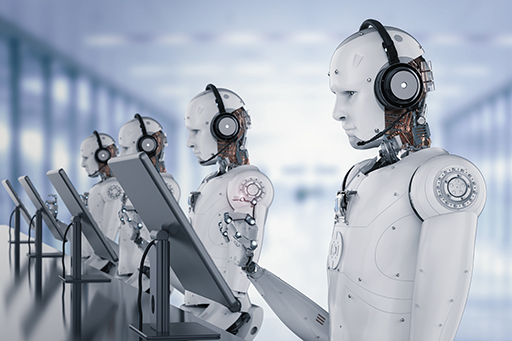3 The future of the world of work
As we look to the future for reassurance that robots are not going to take all our jobs, we increasingly encounter the opinions of professional ‘futurists’. These are individuals from a range of professions, with experience in strategy and planning, who focus their attention on future trends, forecasting and change.
Watch this short video by professional services company EY, explaining ‘The Future of Work’ and the skills that will be needed.
So, how might that information impact on your personal brand?
Adaptability is a key theme in this and many other articles or video clips that cover the future of work.
Kokemuller (n.d.) explains that ‘companies need employees who are open to new ideas, flexible enough to work through challenging issues, and generally able to cope when things don’t go as planned.’ He goes on to suggest that adaptable people can:
- come up with alternative solutions when their first suggestion is rejected
- cope when unexpected new projects are given to them
- deal with changes to their role
- remain calm and confident when facing a dilemma.
Activity 3 How adaptable am I?
Answer this typical application form question about adaptability in the box below.
Describe a situation when you had to change the way you worked because of changing circumstances. How did you adapt?
If you’re unsure of how to structure your answer, use the STAR model, i.e. situation, task, action, result. Your emphasis should be on the action you took. To find out more about using the STAR model, visit this OU Careers and Employability webpage: Job interviews: an overview: Using the STAR technique in a job interview [Tip: hold Ctrl and click a link to open it in a new tab. (Hide tip)] .
Discussion
Sample answer:
Situation: My employer introduced a new IT system at very short notice, which fundamentally changed my daily activities.
Task: I was tasked with training my team to ensure that they could work with it efficiently.
Action: Despite my initial reservations, I quickly researched the system and identified colleagues within my sector who were already using it. I was reassured by my conversations with them that it would lead to significant improvements for us. I invited one of my contacts to come and talk to the team, which was very well received, and I took a small group to visit their premises to see exactly how the system worked for them.
I involved myself closely with the team who came to install the system, ensuring that I had a good overview of how it worked and knew who to contact if I had any problems.
Result: There were a few hiccups along the way, but the system was installed on time and my team were enthusiastic about using it. By the time it was up and running, we all felt confident about the key elements of the system and how it would fit in with our work.
While this may not be one of your strengths, you can develop your adaptability. Becoming more adaptable to change is largely about mindset.
For example, Boss (2014) talks about the importance of redefining your motivation. He explains:
For instance, if personal growth is a primary motivator then try to see adaptability through the lens of self-improvement; if relationships are a key driver for you, then think about how rich and meaningful your relations with others will be after you adapt. How you frame the problem through your mind’s eye is what determines your reaction, so if you redefine how you see the problem then you can set yourself up for success. Being ready and willing to adapt is half the battle.
The future of the world of work is a significant issue that many organisations have a strong and vested interest in. To keep up with how the world of work is changing, there are several useful sources of information in the Further reading section at the end of the week.

